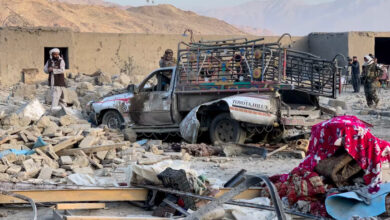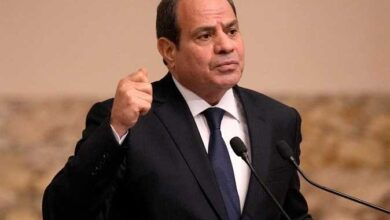
We consistently complain about the declining performance of our media, and its inability to meet our expectations.
While some criticize the absence or scarcity of serious public opinion institutions—and cast doubt on the methodologies of foreign surveys, arguing they are “susceptible to manipulation and bias”—others claim that a “culture of public polling” is fundamentally lacking in our region for political and cultural reasons.
Nonetheless, the essence of this constant complaint is undeniable.
The most prominent evidence of this dissatisfaction with the performance of our “traditional” media can be seen by any observer: a massive shift away from conventional channels towards social media platforms.
There is a continued reliance by a significant portion of the local public on foreign, Arabic-speaking media for news, information, and analysis concerning their own country.
This is compounded by the almost effortless discovery of sharp and frequent criticism of traditional media outlets and their stars across social media.
If we can agree that this general feeling of dissatisfaction with the performance of national media exists, and then agree that there is an overwhelming desire—and even a stated political will—to “develop” the media, then reaching an agreement on the nature of this “development” becomes a difficult and elusive task.
This paradox creates a rare situation among reform and development experiences in various fields. Its symptoms are evident in an analysis of the complaints that crystallize this public dissatisfaction.
We find that some critics focus their critiques on the prevalence of closed-mindedness and the entrenchment of a traditional, conservative culture in media practices, while others see a spread of an openness that borders on permissiveness and a dissolution of values.
As a result, we also see complaints about the absence of critique and opposition, while others criticize the media for neglecting to highlight government achievements. Some will attack the media’s focus on international and regional affairs, while others will complain about the lack of a strong external media presence and a retreat into domestic issues.
This clear contradiction in what motivates public dissatisfaction with the performance of national media reflects the reality that Egyptian society is full of multiple—and at times contradictory—trends and currents. This is, of course, a healthy state of affairs, as long as the tools used to manage this diversity are professional and operate within the law.
Among the factors that deepen the negative effects of this public dissatisfaction is that most critics direct their critiques, attacks, or change proposals toward the single largest owner and almost sole manager of the media: the national state. Since its establishment, the state – through its executive bodies – has managed, directed, funded, or controlled the media, with very few exceptions.
In reality, this is a genuine dilemma, and none of us has a decisive or final solution for it.
That’s because part of the problem is based on the conflicts of interest that are necessarily present in any healthy society. This is strengthened by the intellectual, political, and social diversity that is required, which is then reflected in the contradictory stances toward media management and its content.
Nevertheless, the most organized countries in the developed world have previously faced this very problem. Among the best practices they have adopted to address and control its effects, we find three solutions. The first is that the state has the right to own and supervise a system of what is called “public media.”
Through this system, it can broadcast messages and content that serve higher national interests and embody public visions that enjoy a broad consensus.
However, the state is also obligated to ensure that its media system reflects the diversity of viewpoints within society. Its performance must be governed by strict administrative, financial, and professional standards, and it should offer a sophisticated and advanced product, serving as a role model for private channels.
The second solution is to make the media landscape free, diverse, and pluralistic.
This would allow every trend, school of thought, and stakeholder to find an opportunity for self-expression, as long as they abide by mandatory legal and professional considerations.
Of course, this would require adapting ownership to allow for fair competition and to avoid monopolies and harmful concentrations of ownership.
The third solution is to give society an opportunity to manage its national media space through a diverse, broad, and balanced representation of its various groups. This approach would eliminate the biggest pretext for public complaints and allow the media to earn the appropriate amount of public trust and satisfaction.
It would also enable the media to fulfill its presumed role in achieving self-sufficiency, ensuring the necessary credibility, and preserving higher national interests.
Author’s bio:
Yasser Abdel Aziz is an Egyptian writer, media expert, and consultant with a master’s degree in public law and PhD in media from Cairo University.
He boasts distinguished career that includes serving as the Cairo bureau chief for Asharq Al-Awsat and working as a correspondent for several major Arabic newspapers.
He has also acted as a consultant for including Al-Masry Al-Youm, Al-Watan, and Kuwait’s Al-Jarida and trainer for the BBC World Trust in the Middle East and North Africa.
He has published multiple books and research papers on media ethics and the organization of the media sector.




